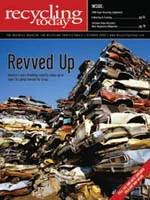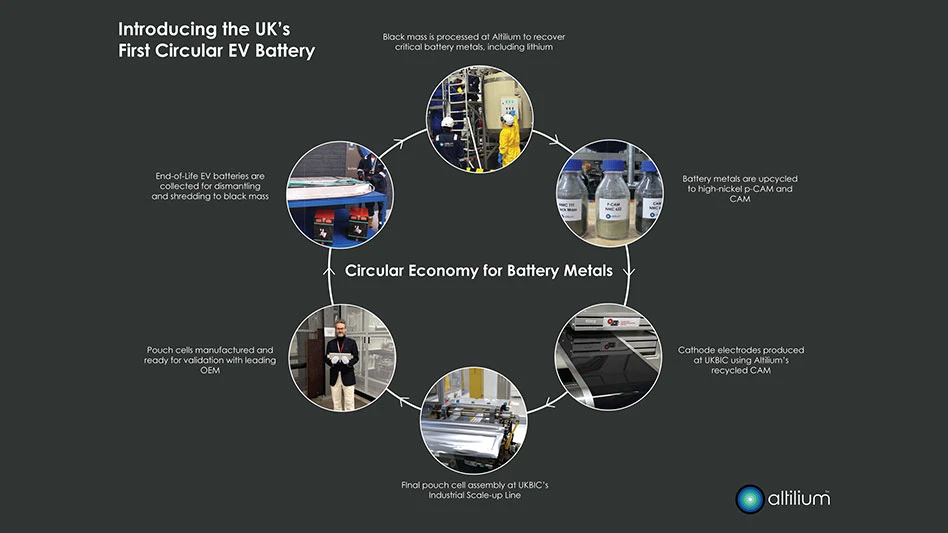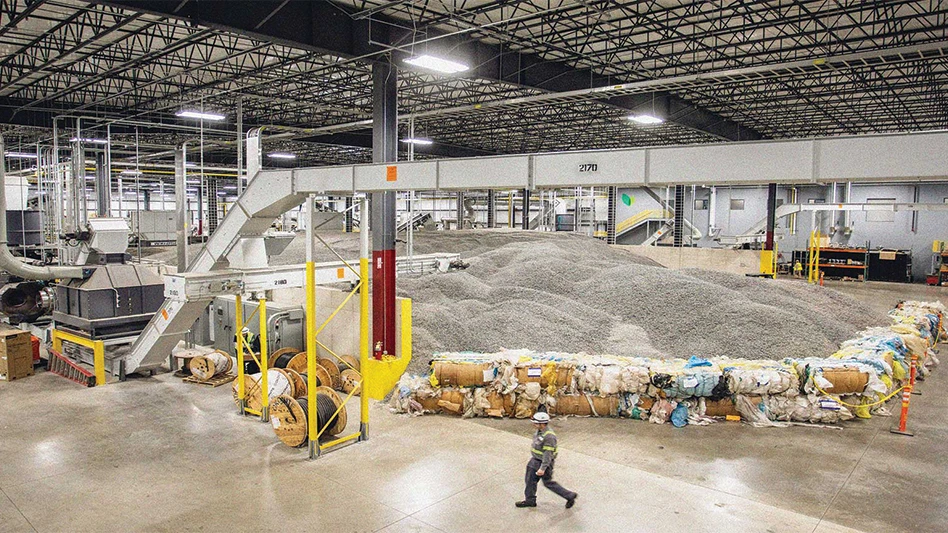The National Vehicle Mercury Switch Program (NVMSP) has boosted the payment it offers for both mercury switches and brake assemblies that are recovered from end-of-life vehicles.
Starting Aug. 1, 2008, the NVMSP increased the payment for mercury switches removed from trunks, glove compartments and hoods from $1 to $4. The group also increased payment for full brake assemblies from $3 to $6.
The mercury-bearing items must be sent to an entity known as End of Life Vehicle Solutions, which in turn works with a private firm called Environmental Quality Co., Wayne, Mich., to process and recycle the materials.
A GOOD START
The NVMSP program, introduced in August of 2006, was initially slated to run for three years. The program received about $4 million in funding for the payments, with half the money coming from the auto industry and the other half coming from United States-based steelmakers.
The voluntary program was created as a way to recover more switches immediately, rather than engaging in a protracted rules writing process, according to Rick Otis of the United States Environmental Protection Agency (EPA).
Otis acknowledges that negotiations between automakers, steelmakers, scrap recyclers and auto dismantlers were at times "heated" as how the program would take shape was debated. There were "a year’s worth of negotiations, sometimes a little contentious," he remarks.
While the half-inch switches contain only a small amount of mercury individually, cumulatively if 4 million switches are melted each year, that could result in almost 4 tons of mercury entering steel mill furnaces, baghouses and emission stacks.
The EPA is "aiming for about 80 to 90 percent recovery" and has identified collecting 4 million switches as the target number, says Otis.
GAINING STRENGTH
Raising the "bounty" paid for each switch will ideally help those involved get closer to that goal.
Interviewed at the Institute of Scrap Recycling Industries Inc. (ISRI) 2008 Convention & Exhibition in April, Steve Levetan, senior vice president of auto dismantling firm Pull-A-Part, Atlanta, was in favor of the NVSMP and of raising the per-switch payment.
The Pull-A-Part retail and dismantling chain (See "Super Model" in the September 2007 issue of Recycling Today) has been actively supporting and taking part in the NVSMP, says Levetan. He says of dismantlers, "We’re the logical ones in the chain to remove the switches."
He added, "We feel strongly the program should not stop, but we should be compensated for that work." Dismantlers should not be expected to shoulder the full cost of switch removal.
Levetan said between June of 2007 and April of 2008, Pull-A-Part locations had removed some 33,000 mercury switches from vehicles of which it took possession.
Unfortunately, his figures also showed that this represented some 68 percent of all switches recovered in Georgia and 95 percent of those pulled in Alabama, demonstrating that the program had yet to gain the favor of many other dismantlers.
Levetan advocated that auto shredder yards were "the logical place to disseminate the information" on the program, because drivers hauling car bodies connect the shredder yards to the nation’s estimated 7,000 dismantling companies.
Sponsored Content
Labor that Works
With 25 years of experience, Leadpoint delivers cost-effective workforce solutions tailored to your needs. We handle the recruiting, hiring, training, and onboarding to deliver stable, productive, and safety-focused teams. Our commitment to safety and quality ensures peace of mind with a reliable workforce that helps you achieve your goals.
The quadrupling of the per-switch payment from $1 to $4 should also help, Levetan says. "Offering $1 is not enough of an incentive to get a lot of people involved," Levetan said earlier this year.
ISRI and the scrap recyclers it represents have largely been in favor of the program, as they see the removal of mercury from the scrap stream as essential to preserving scrap as a steelmaking feedstock.
Mark Reiter, an assistant vice president and chief lobbyist with ISRI, notes that while an overwhelming majority of the auto shredders in the U.S. have signed up for the program, ISRI, along with the Automotive Recyclers Association, Fairfax, Va., continues to seek even greater participation from companies involved in handling end-of-life vehicles.
"More than 80 percent of the auto shredders in the United States already are involved in the program," he says. "As a staff we have been aggressively promoting the program," Reiter says.
The authors are editors at Recycling Today and can be contacted at dsandoval@gie.net and btaylor@gie.net.
Get curated news on YOUR industry.
Enter your email to receive our newsletters.

Explore the October 2008 Issue
Check out more from this issue and find your next story to read.
Latest from Recycling Today
- Returpack reports increased DRS activity in Sweden
- Trade groups align against European export restrictions
- Construction, auto sectors show mixed signals
- Politics in Turkey threaten recycled steel outlet
- Toppoint Holdings expands chassis fleet
- Lego creates miniature tire recycling market
- Lux Research webinar examines chemical recycling timetables
- Plastics producer tracks pulse of wire recycling market







